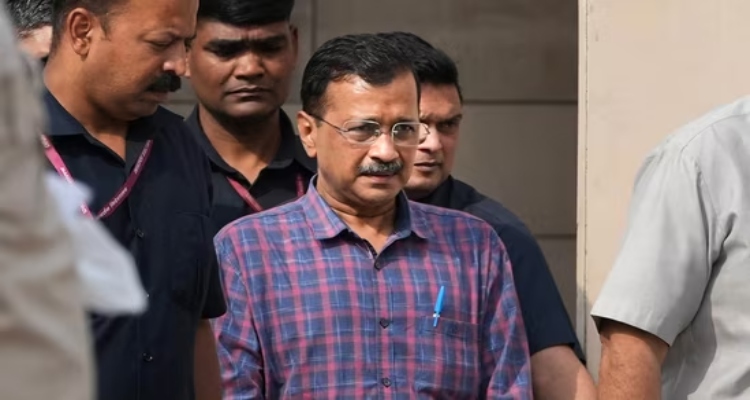
The Delhi chief minister Arvind Kejriwal moved the case to Delhi high court on Monday, against his arrest by the Central Bureau of Investigation in the excise policy case.
On June 26, the Aam Aadmi Party chief also opposed the Delhi court’s order that sent him to 3-days custody.
On Saturday, after Kejriwal’s 3-day custody got over, the Delhi court sent him to judicial custody till July 12, claiming his name had come out as one of the “main conspirators” in the excise policy case.
The agency had sought 14-day judicial custody, claiming Arvind Kejriwal didn’t support the probe and gave vague responses. The agency informed them that Kejriwal might influence the witnesses.
Case History
Arvind Kejriwal, whom the Enforcement Directorate detained on March 21 in a money-laundering probe associated with the excise policy case, was detained by the CBI on June 26.
Special judge Sunena Sharma stated, “Considering the fact that the conspiracy alleged against the accused (Kejriwal) involves a large number of persons who were involved in the formulation and implementation of excise policy and also the persons who acted as facilitators in the use of ill-gotten money, I find that there exist sufficient grounds for remanding the accused to judicial custody.”
The judge informed the agency that it needed a custodial inquiry into Arvind Kejriwal to “confront him with more material likely to be collected during the investigation.”
The court further informed the investigating officer (IO) that he had observed in the case diary that Kejriwal was not supportive during his custodial inquiry, nor was he honest while revealing facts.
“The IO has pointed out certain incriminatory material collected during the investigation for showing that the ill-gotten money was used during the Goa assembly election for making payments towards the expenses of air tickets and hotel bookings during the visits of the accused to Goa from June 2021 to February 2022,” the court observed.
Arvind Kejriwal and some other AAP leaders are charged with accepting ₹100 crore as a bribe from a group of businessmen and politicians in return for enacting a favorable liquor policy. The policy was eliminated soon after Delhi’s lieutenant governor directed a probe into alleged irregularities in granting liquor licenses.
According to the CBI and ED, a crucial part of the alleged kickbacks was diverted for the party’s election campaign in Goa via hawala channels.




